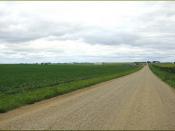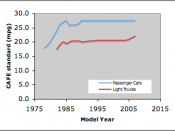For years, automakers have cited studies contending that thousands of people die annually because fuel economy regulations force the companies to make cars that are not heavy enough.
Larger vehicles, the argument goes, may guzzle more gas but they offer more protection, whether one hits a tree or another car. The argument has been a central one when efforts emerge in Congress to raise fuel economy standards. And it is taken seriously by the Bush administration, which has started an effort to rewrite the fuel economy rules.
The problem with this argument is that it now has little relationship to the American road. As safety advocates point out, the lightest cars have virtually disappeared from American roads over the last 15 years, while the largest vehicles - including sport utilities and pickups - have ballooned, both in number and heft.
The portion of cars that weigh 2,500 pounds or less, which was 18 percent of all passenger vehicles sold in the 1985 model year, has fallen to less than half a percentage point, according to the Environmental Protection Agency.
In fact, the average American car has been steadily gaining weight for a decade and a half.
Over the same period, the growth of the largest vehicles has only expanded weight differences that are widely acknowledged to be deadly in collisions. Moreover, the largest vehicles are increasingly not cars but sport utilities and pickups, which ride much higher than cars, increasing the danger to people in cars and the likelihood of deadly rollovers.
When the government created fuel economy regulations after the energy crisis of the early 1970's, few imagined they would become a flashpoint because of an entirely different issue - safety. But the official the Bush administration has chosen to preside over the effort to rewrite the rules, John...


